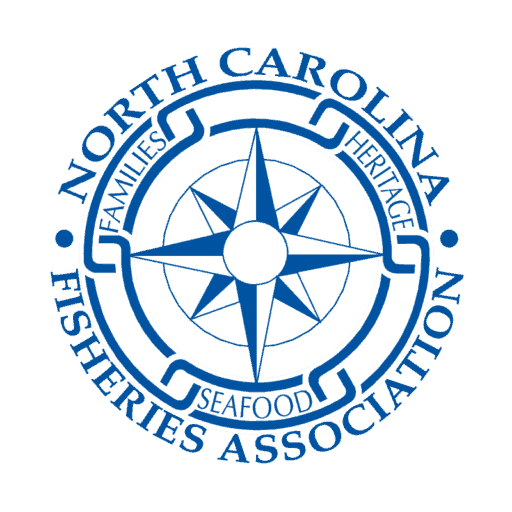Striped Mullet
First, I believe it’s important to let folks know that all available data, points towards a dramatic increase in abundance of Striped Mullet.
DMF’s (NC Division of Marine Fisheries) electrofishing survey, which is only conducted in a small portion of the State and limited to low salinities, is showing significant catches of Striped Mullet. However, the electrofishing survey data was not used in the stock assessment.
DMF’s Independent Gill Net Survey, which was used in the stock assessment to estimate abundance, has shown significant increases in catch since the 2019 terminal year of the stock assessment.
Commercial landings have steadily increased, with 2022 landings being the 5th highest on record. Runaround gill net catches have become more frequent as well as much larger with catches of 8,000 to 10,000+ pounds becoming more common than ever before and the stop net fishery made one of its biggest sets ever in 2023.
The most current DMF data and anecdotal reports from stakeholders seeing more mullet than have been seen in decades suggest that the Striped Mullet stock is rapidly expanding. Yet DMF has disregarded these obvious and undeniable signs of improvement and, once again, recommended draconian reductions that seem totally unnecessary when all relevant data is considered. A stock assessment does not freeze time, preventing managers and regulators from considering recent data when making management decisions. While the official stock status has not changed, the fact that this stock is experiencing a positive change, prior to the implementation of any management measures, is obvious and should be considered when making management recommendations!
Secondly, DMF staff have said multiple times that while the number of participants has remained steady, effort has increased over the last few years.
Has it really? Have fishermen, who have participated in this fishery for years, suddenly decided to work harder than they ever did in the past? The Division uses trip ticket data as a proxy for commercial effort but this method is fundamentally flawed. Trip tickets are only filed when a catch is sold, meaning trips with no catch\sell are not recorded and true effort is unknown. This said, an increase in landings\trip tickets could simply be the result of increased success, due to increased abundance, not increased effort.
For example, if fishermen took 10,000 trips per year for two consecutive years and had 6,000 trip tickets one year and 7,000 the following year, DMF would assume that effort had increased, when in reality it was actually the catch per unit of effort that increased. Fishermen effort was the same both years but the second year simply had a higher success rate.
This is why independent sampling is conducted, to compare to fisheries dependent data before making this type of assumption. Again, DMF’s data (such as it is) and trip ticket data are both showing signs of improvement, suggesting improvement in the stock and increased catch per unit of effort. Despite this, Division staff have interpreted increased commercial landings as increased effort and have portrayed it as “increased harvest on an already overfished stock”! This lack of transparency is unprofessional and unethical, in my opinion, and has no place in the State’s management process.
Third, it’s my understanding that it is now Division policy to make management recommendations that shoot for the target (highest possible reduction) rather than the threshold or somewhere in between.
Management decisions should be based on all relevant data, taking uncertainty and recent data into account, not some blanket policy that requires staff to disregard the levels of uncertainty and\or new information that wasn’t included in the stock assessment. How certain is this latest assessment? The 2018 stock assessment said overfishing was not occurring, while the 2022 assessment says overfishing has been occurring close to two decades! Where is the justification for such a dramatic discrepancy?
Will this Division policy of maximum reduction be adhered to for managing Spotted Sea Trout, where the recreational sector is the dominant source of removals?
Finally, with all information considered I can’t comprehend why the Division would want to take any drastic reduction, but it’s clear that they’ve dug their heels in, once again. That said, there’s only one option for ending “overfishing” that would impact all fishermen, fisheries (bait, food, roe) and areas equally, that would allow traditional use of the fishery to occur. A weekend closure, preferably with a bycatch allowance to prevent waste, seems like the only management option that works, both on paper and in the real world, where most of us live. Once again NC fishermen are being asked to pick our poison! The question is, will DMF meet us in the middle, as they should, or once again ignore the stakeholders and data by pushing for the most draconian reductions they can dream up?
I personally think that it’s become the policy of the Division to save face rather than to save fisheries, and that’s the real problem, not fisheries being “overfished”!
Glenn Skinner-NCFA Executive Director- Glennskinner@ncfish.org
Upcoming Meetings
Briefing Materials:
Draft Striped Mullet FMP Amendment 2
Striped Mullet Decision Document
These meetings will be live streamed on YouTube but if you want to make public comment you will need to attend one of these three meetings in person.
Northern Regional Advisory Committee
Tuesday, January 9th, 2024 at 6:00pm
Dare County Administrative Building
Commissioners Meeting Room
954 Marshal C. Collins Drive
Manteo, NC
Southern Regional Advisory Committee
Wednesday, January 10th, 2024 at 6:00pm
Department of Environment Quality
Wilmington Regional Office
127 Cardinal Drive
Wilmington, NC
Finfish Advisory Committee
Tuesday, January 16th, 2024 at 6:00pm
Division of Marine Fisheries
Central District Office
5285 Highway 70 West
Morehead City, NC
LEGISLATIVE UPDATE: 1.8.2024
2024 LEGISLATIVE CANDIDATES, PRIMARY
2024 NC SENATE PRIMARY
Of particular interest regarding coastal fishing: NC Senate District 3 includes Craven, Lenoir and Beaufort
Counties. Currently, the District is represented by Senator Jim Perry. However, Jim has decided not to
run for re-election.
There are 2 Republicans in the primary for this district: former Representative Michael Speciale and New
Bern Alderman Bob Brinson. The winner of the Republican primary will face Democrat Charles Dudley of
Havelock. If you recall, Michael Speciale was very active in his opposition to the gamefish bill a few years
ago and has always been supportive of commercial fishing families. NCFA does not endorse candidates,
but merely mentions this to help you decide.
Please do your homework when it comes to the primary and general elections this year. You can start by
taking a look at the Senate candidates here: https://webservices.ncleg.gov/ViewDocSiteFile/82023
2024 NC HOUSE PRIMARY
Candidates for the NC House primary here: https://webservices.ncleg.gov/ViewDocSiteFile/82000
Please contact me if you have any questions or concerns.
Jerry

